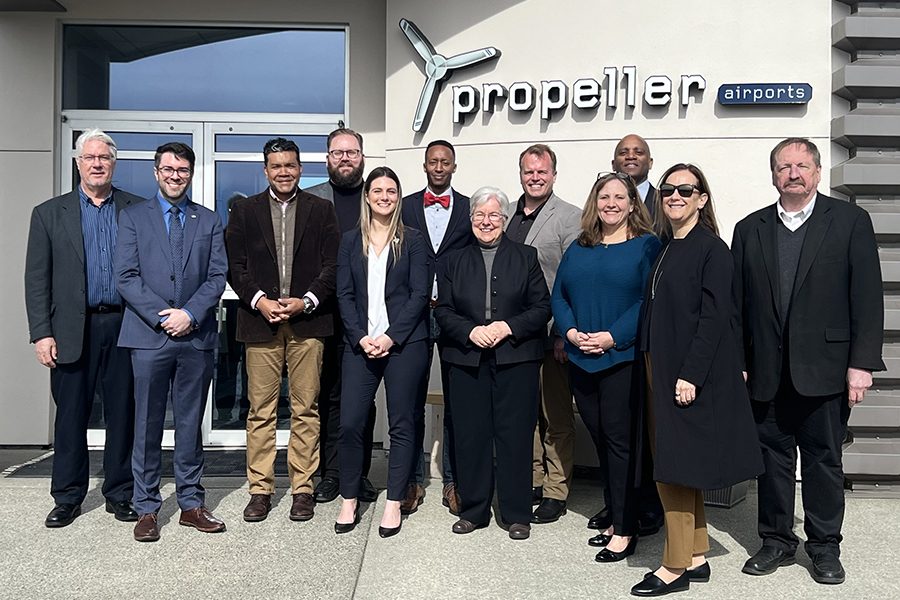
Home » WSU Tri-Cities to guide development of sustainable aviation fuel R&D center
WSU Tri-Cities to guide development of sustainable aviation fuel R&D center

April 12, 2023
Washington State University Tri-Cities and Snohomish County have teamed up to develop a proposed research and development center for sustainable aviation fuels.
Snohomish County officials announced plans for the $6.5 million Sustainable Aviation Fuel (SAF) Applied Research and Development Center at Paine Field on March 28.
The first-of-its-kind center will offer fuel testing, fuel finishing and the world’s first fuel repository.
“Washington state’s leadership in aviation and the environment was one of the reasons I moved across the country to join WSU. Here, the state is supporting efforts to meet global challenges while complementing existing strengths,” Heyne said in a statement. “WSU research has enabled the inception of global policies and new technologies to benefit state agricultural and industrial activities from Pullman to Everett. We are proud to partner with Snohomish County, our state Legislature and industry partners to once again meet a global need with local interests.”
Currently, BSEL is developing the next generation of SAF with research, partnerships and as the official FAA SAF prescreening lab.
Officials say the development of the center is an important step toward addressing global climate change and for the continued success of commercial aviation.
Hundreds of samples from North America and Europe have been tested and its researchers have developed novel experimental and computational tools to evaluate SAF candidates at very low volumes. BSEL will continue to develop additional low-volume (<20 gallons) tests at WSU Tri-Cities.
In addition, the lab has worked with more than three dozen institutions from across academia, national labs, and industry to align their technologies for commercialization.
The center will support the following SAF components:
Repository: SAF samples will be received, tested at small scales, indexed, distributed around the U.S. and world. This meets an immediate community need as a repository of this type does not currently exist.
Finishing: SAF samples and production methods could be investigated to reduce costs and the impact on human health and the environment.
- Large-Scale Testing: SAF samples could be tested at large scales (by the thousands of gallons) needed to ensure safety and bring new fuels and products to market.
The center would allow for sustainable fuel samples to be more thoroughly tested by researchers and give them opportunities to find more efficient production methods that are less impactful on human health and the environment.
Project leaders are seeking additional state funding to make the center a reality.
State Sen. Marko Liias has proposed $6.5 million in start-up funding for the project in the proposed Senate Transportation Budget, with state Rep. Brandy Donaghy taking up the effort in the state House of Representatives.
The Legislature is expected to vote on a compromise transportation budget in the coming weeks. Concurrently, the county, WSU and the AFA are releasing a Request for Qualifications to identify a contractor to develop a business plan for the center. The plan should be complete in September 2023.
Local News
KEYWORDS april 2023




